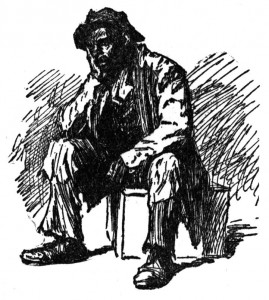 A study by researchers at the University of Michigan and the University of Wisconsin finds that growing up in a low-income neighborhood has a devastating impact of the life prospects of young blacks.
A study by researchers at the University of Michigan and the University of Wisconsin finds that growing up in a low-income neighborhood has a devastating impact of the life prospects of young blacks.
The study followed more than 2,000 children ages 1 to 17 in neighborhoods with high rates of poverty, unemployment, female-headed households, and welfare recipients. The results showed that only 76 percent of black children who grew up in these neighborhoods are likely to graduate from high school, compared to 96 percent of black children who grew up in affluent neighborhoods. White children in poor neighborhoods also were less likely to graduate from high school but the impact was not as great. The results showed that the longer a child lives in poverty neighborhoods, the more harmful the impact on the child’s educational prospect.












